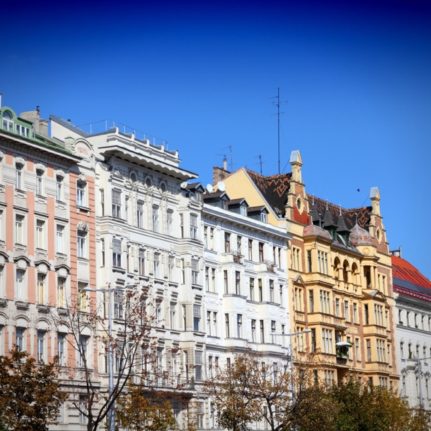Vienna Mayor Michael Ludwig said in a statement on Friday that the city authorities would be introducing the extra measures to “keep in check… the dangerous development” of infection rates in the city.
“People’s health comes first. And it is our duty to continue to act now,” he said.
In the last seven days, there were 443.3 cases per 100,000 people in Vienna, according to the latest figures on Austria’s Covid dashboard from November 11th. Case numbers have increased approximately four-fold from a month earlier.
New level introduced
One of the measures in the five-point plan is the introduction of the so-called 2G+ level – proof of vaccination or recovery and also a negative PCR test no more than 48 hours old.
This new level will apply to all events where there are more than 25 people (including sporting events) and for going to bars and restaurants in the city in the evening.
If 2G+ applies, then you don’t need to wear a mask.

Vienna City council spokesman Mario Dujakovic outlines the steps on Twitter.
FFP2 masks indoors
Customers will also be required to wear FFP2 masks in eating establishments when they are not at their table or at allocated bar seating. Staff will also have to wear FFP2 masks.
Mask-wearing will also be enforced in all public indoor spaces now. This includes all shops and services as well as in the workplace where there may be close contact with other people.
Home-working encouraged
All those who work for the city will be pushed to work from home wherever possible as the City wants to lead by example in the hope the private sector will also follow suit.
READ ALSO: Key points: New Covid rules for Salzburg and Upper Austria
READ ALSO: Austria’s Green Pass: What counts as proof of 2G?

This chart from Our World in Data shows sharply rising case levels in Austria.
Booster interval cut
In addition, from Saturday, Vienna residents will be able to get a third booster vaccination only four months after their second dose, not six months as originally planned.
By reducing the interval, the city hopes to stabilise infection rates, reverse rising case numbers and prevent hospitals from being overwhelmed.

Vaccination rates in Austria are increasing, albeit at a much slower rate than that seen in other European countries, this chart from Our World in Data shows.
Jabs for over-fives
The new measures also include the start of vaccinations for children between five and 11 as of Monday at the Austria Centre Vienna (ACV), making Vienna the first EU region to vaccinate children of this age.
Children can be registered for the jabs (Pfizer/Biontech only) from Saturday. Because they’re minors, it’s not possible to create a separate account for them so parents or guardians will need to add them as a family member in their own account in the Personal Data (Personendaten) section once you’ve logged in before you can make a booking.
In the pilot phase of these vaccinations, healthcare professionals will only be able to give around 200 shots a day as they will need more time for detailed discussions with parents and children beforehand.
Vaccination slots for this age group are available every day between 7-10am and 3-7.45pm.
The European Medicines Agency (EMA) has not yet issued an authorisation for any of the vaccines to be used for this age group but member states have the right to do so anyway to respond to a public health emergency.
The tougher city-wide restrictions come as Austria prepares to approve lockdown for the unvaccinated on Sunday.



 Please whitelist us to continue reading.
Please whitelist us to continue reading.
Member comments